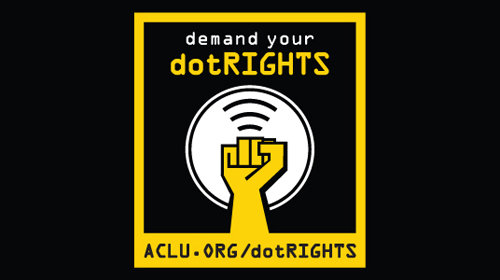
[ACLU of Northern CA – Linda Lye]
The ACLU and Electronic Frontier Foundation have filed an amicus brief in what will be the first case in the country to address the constitutional implications of a so-called “stingray,” a little known device that can be used to track a suspect’s location and engage in other types of surveillance. We argue that if the government wants to use invasive surveillance technology like this, it must explain the technology to the courts so they can perform their judicial oversight function as required by the Constitution
Next Monday at the Supreme Court: Trying to Stop the NSA’s Unconstitutional Overreach [ACLU – Josh Bell]
The next time you send an email or make a phone call to a friend outside the country, consider this: the National Security Agency could be making a copy of your communication and storing it. What about the Fourth Amendment? According to the government, not only is this practice constitutional, but ordinary federal courts should not even be allowed to rule on it.
[Wall Street Journal – Jennifer Valentino-DeVries]
"A judge in Texas is raising questions about whether investigators are giving courts enough details on technological tools that let them get data on all the cellphones in an area, including those of innocent people."
[New York Times - Edward Wyatt]
said on Monday that it would change its new disclosure policy to tell consumers explicitly that it would not use personal information it collects from users of some Microsoft products to produce or promote targeted online advertising."
[Forbes – Kashmir Hill]
"Facial recognition technology has moved out of the world of science fiction and into reality. There are billboards that scan your face to decide , and there’s talk of Kinect being used to decide which ads to show you at home "
[Digital Innovation Gazette – Tim Kridel]
"More than half of app users have uninstalled or decided to not install an app due to concerns about personal information, . If that isn’t motivation enough to protect customer privacy, consider the growing number of federal and state laws penalizing breaches."
Learn more about digital privacy: Sign up for breaking news alerts, , and .


